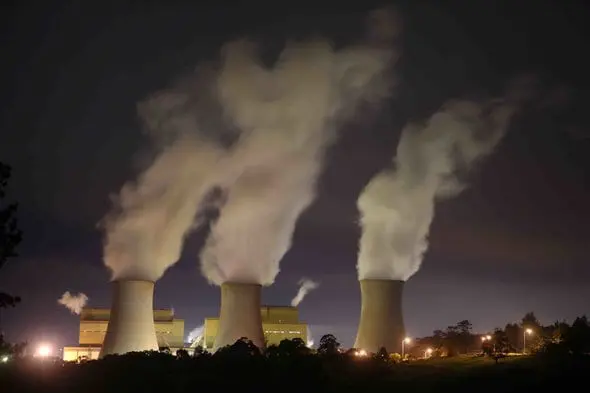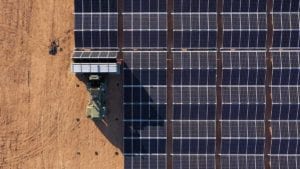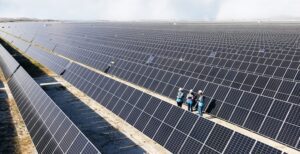The energy lobby group representing the last of the Australian generators who are still strongly committed to fossil fuels has railed against the proposed landmark environmental initiative for Australia’s electricity markets.
The introduction of an environmental component into the National Electricity Objective was agreed by state energy ministers last year, and is seen as one of the most important decisions made since the National Electricity Market was created more than two decades ago.
The NEO was to have an environmental component when the NEM was created, but it was dumped at the last moment from the legislation put forward by the then Howard government, allowing regulators to make key decisions with no regard to the environment or emissions targets, and for fossil fuel interests to reign supreme.
The absurdity of the situation was highlighted in the regulatory madness that favoured dirty diesel over an innovative clean storage option in Broken Hill – a decision last year made on the basis of money, and money alone.
Other investments, particularly in transmission, have also been dumped or delayed for similar reasons, and because arguments that the investments would lead to lower emissions could not be considered.
The federal government is consulting on how to implement the first substantial change to the objectives of the National Energy Laws in 15 years, which is expected result in a rethink of key rules and regulations that will, in turn, help fast-track the shift from coal and gas to a renewables-based grid.
The Australian Energy Council and its members, particularly those still addicted to coal and gas, are not happy. In its submission to the government – published on its website this week – the AEC demands a watering down of the legislation to change the wording of regulatory obligations to “should” rather than “must.”
“The AEC strongly urges the government to consider … making it permissible, rather than mandatory, for regulators to have regard to emissions reduction targets,” it says. “This could be achieved by stating that regulators should, rather than must, have regard to emissions reduction targets.”
Keen observers of policy negotiations might remember the frantic last minute negotiations for the Paris climate treaty over the final text and the inclusions of the words “ought” and “should”.
The fossil fuel lobby has always argued for “should” because it gives them the wriggle room to do nothing, or at least a lot less than is expected. They are still at it.
“If emissions reduction is a National Energy Objective, then it will be mandatory for regulators to have regard to emissions reduction policies when exercising their powers,” the AEC says in its submission.
“An alleged failure to have regard to these policies, or an allegedly ‘unreasonable’ decision in light of these policies, might become the basis for an application for judicial review of the decision.”
The AEC says it fears that regulators may get sued by activist groups.
“There are, in Australia, numerous, well-funded organisations which frequently challenge decisions by regulators on the basis that the decisions do not have sufficient regard to climate change and other environmental risks,” it says.
“The challenges, although mostly unsuccessful, create considerable delay and expense for energy projects, at a time when the energy transition can ill-afford further delays and even higher expenses.”
This sounds a bit rich coming from one of the most powerful and well funded lobbying groups in the country, backed by Big Fossil, which has actively campaign against the carbon price and other environmental and climate policies – that might have made the need for an environmental objective redundant.
It is, however, just the latest in a multi-decade campaign to do anything it can to stop or slow the switch to clean energy.
The AEC has complained about the variations in state laws and targets, and wants these ignored by the new environmental objective. It says the focus should only be on the much weaker federal targets.
These state targets only exist because of the failure by federal governments to introduce meaningful legislation, mostly as a result of the intense lobbying of the AEC and other fossil fuel lobby groups such as the Minerals Council of Australia.
The AEC is led by Sarah McNamara, the former AGL lobbyist who was prime minister Tony Abbott’s energy advisor when he scrapped the carbon price and tried to do the same with the renewable energy target, and it fears that including emissions reduction goals will turn into a carbon price they had always fought against.
The Clean Energy Council says the inclusion of guidance around how to achieve emissions reduction goals through the NEO would make it easier to create policies that accelerate effective NEM decarbonisation at the lowest cost.
And, it says, it would also help deliver an orderly transition to clean, low-cost electricity and provide increased investment certainty because it would increase clarity around the treatment of carbon and flow through into better decision-making across the board.
It could include a requirement to minimise the cost of carbon. It says This might translate into regulatory decision-makers using an assumed dollar value for each tonne of CO2e to assess a particular decision to minimise these costs when undertaking quantitative cost-benefit analysis.
Of course, the introduction of an environmental objective and emissions target into the rules of the market won’t impede the massive investments in wind, solar and storage that are required to meet government and environmental goals, they may just facilitate them by removing some of the key regulatory barriers.
The only investments that are impacted are the existing coal and gas generators, particularly the ageing baseload and inflexible assets that are most threatened by the switch to variable renewables and readily dispatchable storage and back-up capacity.
The AEC membership features large numbers of utilities who own such assets – Alinta, AGL, Stanwell, Intergen, Delta, EnergyAustralia and Engie.
But they also include companies that have no short or long term interest in such assets – such as Pacific Hydro, Iberdrola, Snowy Hydro and its various subsidiaries, and other companies that are swearing off them, such as Origin Energy.
But the power within the AEC is still in the fossil fuel camp, as revealed by the split over the lobby group’s approach to the controversial “capacity” market mechanism that was finally dumped by state energy ministers.






